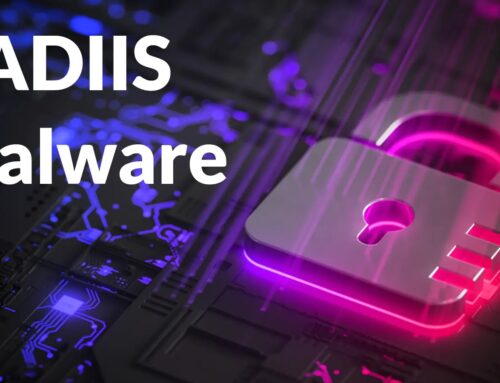
Massistant Chinese Mobile Forensic Tooling Gain Access to SMS Messages, Images, Audio and GPS Data
The digital footprint left on our mobile devices is a treasure trove of personal information. From intimate conversations to geographical traces, our smartphones hold a mirror to our lives. When these devices fall into unauthorized hands, especially those capable of bypassing standard security protocols, the implications for privacy and security are profound. Recently, a concerning development has emerged from China, highlighting an alarming capability to extract sensitive data from confiscated mobile phones: the advent of Massistant.
This new Android application, appearing in mid-2023, is not your typical malware. Unlike the insidious, covert spyware we often analyze, Massistant operates in a more direct, physical manner, signaling a concerning evolution in state-sponsored digital forensics and surveillance capabilities. This post delves into what Massistant is, how it operates, and the significant privacy and security risks it poses.
What is Massistant?
Massistant is an Android application identified as an apparent successor to Meiya Pico’s notoriously powerful MFSocket. Its emergence has been noted on handsets confiscated at Chinese border checkpoints and police stations, indicating its official use in a forensic capacity. Crucially, Massistant is not a piece of malware distributed via phishing campaigns or zero-day exploits. Instead, it is installed physically on a device once it is in official custody.
This method of deployment bypasses traditional cybersecurity defenses designed to protect against remote attacks. Once installed, Massistant pairs with a physical device, presumably a specialized forensic tool, to facilitate the extraction of a wide array of personal data.
How Does Massistant Operate?
The operational methodology of Massistant is distinct and raises critical questions about data access and privacy. Here’s a breakdown:
- Physical Installation: Unlike conventional spyware, Massistant is not remotely delivered. It requires direct physical access to the target device, typically when the device has been seized or is under government control. This suggests a chain of custody where authorities possess the means to unlock and modify the device’s software.
- Tethered Operation: Once installed, Massistant reportedly pairs with an external device or system. This pairing likely enables the data extraction process, suggesting a client-server relationship where the phone acts as the data source and the external system as the data collector and analyzer.
- Broad Data Extraction Capabilities: The tool is designed to gain access to a comprehensive range of sensitive personal data. This includes, but is not limited to:
- SMS Messages: Complete access to text message history.
- Images: All photos and images stored on the device.
- Audio Data: Voice recordings, audio messages, and potentially call recordings.
- GPS Data: Location history and real-time geographical tracking information.
- Circumvention of Standard Security: The very nature of its deployment implies that Massistant can bypass or exploit Android security measures, allowing it deep access to the file system and application data. While specific vulnerabilities leveraged by Massistant (if any are indeed vulnerabilities and not just features of rooted/physical access) are not publicly detailed with CVEs, its function is a de-facto bypass of user privacy controls.
The Privacy and Security Implications
The existence and use of Massistant present significant privacy and security concerns, especially for individuals traveling to or residing in China, or those whose devices may be subject to official confiscation:
- Mass Surveillance Capabilities: Massistant extends the capabilities of state actors to conduct detailed digital surveillance on a massive scale. If widely deployed, it could be used to build extensive profiles on individuals, track their movements, and monitor their communications.
- Lack of Due Process: The physical installation of such a tool on a seized device, without transparent legal frameworks or independent oversight, raises serious questions about due process and human rights.
- Data Exfiltration Risks: Even beyond state use, any tool capable of such deep data extraction inherently carries the risk of data exfiltration and misuse, should the tool or its operational methods fall into unauthorized hands.
- Erosion of Digital Trust: The knowledge that a device can be compromised in such a manner, simply by physical possession, erodes trust in mobile device security and discourages the use of these devices for sensitive communications.
Remediation Actions and Protective Measures for Individuals
While Massistant operates under specific, high-access conditions, individuals can take steps to minimize their digital footprint and protect sensitive information, particularly when traveling or in situations where device confiscation is a possibility:
- Data Minimization: Only carry essential data on your primary device, especially when crossing borders. Consider a “burner” phone or a device with minimal personal data for travel.
- Strong Encryption: Ensure your device is always protected by strong passcodes and full-disk encryption. This makes it significantly harder for unauthorized parties to access data even if they have physical control.
- Cloud Backup and Erasure: Regularly back up critical data to secure, encrypted cloud services. If your device is confiscated and you suspect it might be subject to forensic analysis, consider remote wiping if possible and legally permissible.
- Review App Permissions: While Massistant is an installed application, generally reviewing and restricting permissions for all apps on your device can reduce the amount of data accessible to any application, legitimate or otherwise.
- Use Secure Communication Channels: For highly sensitive communications, consider end-to-end encrypted messaging applications and secure email services, and understand their operational security when crossing borders.
Conclusion
The emergence of Massistant represents a significant and concerning advancement in mobile forensic capabilities, particularly in the context of state-sponsored surveillance. Its power to extract comprehensive personal data upon physical seizure of a device underscores the evolving landscape of digital privacy challenges. For cybersecurity professionals, understanding such tools is crucial for advising individuals and organizations on robust data protection strategies. As digital lives become increasingly intertwined with our physical presence, the need for vigilance and proactive security measures has never been more pressing.





